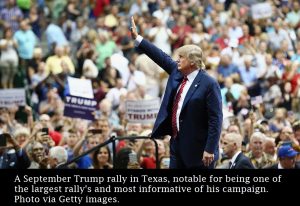Iran protests go largely unnoticed by West

Photo of a large crowd of Iranian protesters in the city of Mashhad in northern Iran.
January 24, 2018
The importance of world events, at least in their impact to the US, can often be measured by the reaction of its public to them. When Paris faced it’s largest terrorist attacks since WWII in November of 2015, “Je Suis Paris” was plastered all over social media. Many observed moments of silence or at the very least quiet condolences to the French.
The plight of Mexican immigrants to the US is often times viewed with solidarity and feelings of a sad intimacy but has even gone as far to inspire several hundred strong protests of U.S. policy, like the DACA protests in Washington during the September of 2017.
“What about Iran?” said junior Joe Stearns when asked about the current nationwide protests there. Beginning in December of 2017, a wave of protests erupted in the country, which, according to an article by Al-Jazeera, largely began because of the economic and foreign policies of Iran, accentuated by sanctions that “have ultimately hit the people’s pockets.” The article then goes on to say these protests have expanded to tackle the ideology of the country, more specifically on the rule of the Supreme Leader Ali Khamenei and some of the religious policies in place.
At least 23 of these protesters have been killed, along with one police officer, and over 3,700 have been arrested. The protests are the first in nearly a decade, since the 2009 Persian Spring, in which the country witnessed widespread protests over allegations of corruption in the reelection of President Mahmoud Ahmadinejad and the largest since the Iranian Revolution in 1979.
The lack of knowledge speaks strongly of US foreign policy, even when only reflected on a small scale. “Of course I remember the Paris attacks,” said senior Sammy Miller, “It was really awful to see so many people were hurt, in a big city too. It was kind of scary to see that it could just happen like that.” Social studies teacher John Bierbaum, when asked about his opinion, said “it’s a reflection of the United States in media. We, in the US and media, treat the world like a play. Iran has been cast as a bad actor, when, in fact, they have been following regulations to a T. This is reflected in the student’s knowledge of the issue.”
Hopefully, as events continue, fate will favor freedom and knowledge will expand beyond the U.S. perspective. Iran has since said the protests are “officially over”, but as reports of more protests and injured protesters arise, the future remains uncertain.



